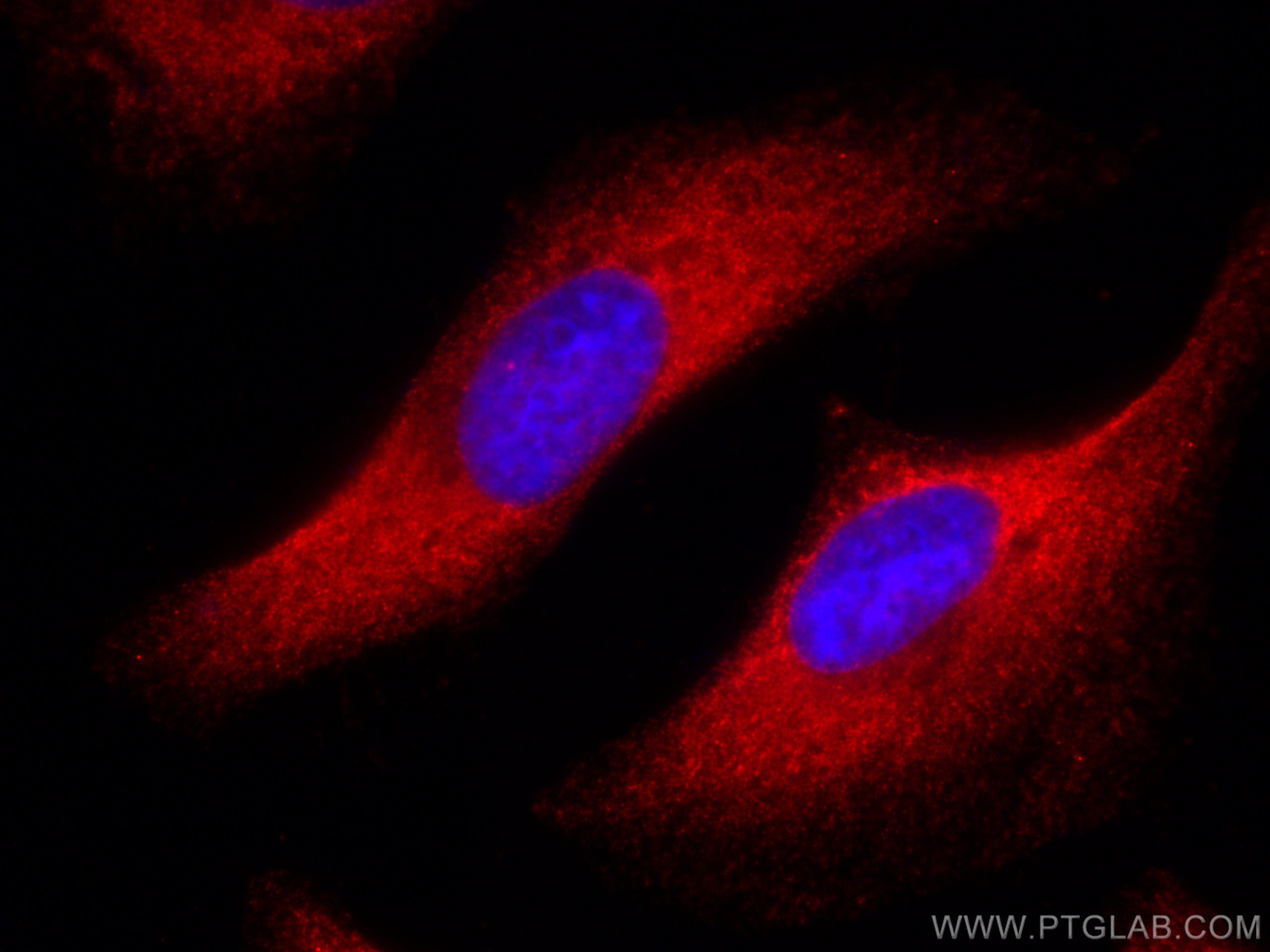Anticorps Monoclonal anti-FASN
FASN Monoclonal Antibody for IF
Hôte / Isotype
Mouse / IgG1
Réactivité testée
Humain
Applications
IF
Conjugaison
CoraLite®594 Fluorescent Dye
CloneNo.
1B6E4
N° de cat : CL594-66591
Synonymes
Galerie de données de validation
Applications testées
| Résultats positifs en IF | cellules HeLa, |
Dilution recommandée
| Application | Dilution |
|---|---|
| Immunofluorescence (IF) | IF : 1:50-1:500 |
| It is recommended that this reagent should be titrated in each testing system to obtain optimal results. | |
| Sample-dependent, check data in validation data gallery | |
Informations sur le produit
CL594-66591 cible FASN dans les applications de IF et montre une réactivité avec des échantillons Humain
| Réactivité | Humain |
| Hôte / Isotype | Mouse / IgG1 |
| Clonalité | Monoclonal |
| Type | Anticorps |
| Immunogène | FASN Protéine recombinante Ag0975 |
| Nom complet | fatty acid synthase |
| Masse moléculaire calculée | 272 kDa |
| Poids moléculaire observé | 272 kDa |
| Numéro d’acquisition GenBank | BC007909 |
| Symbole du gène | FASN |
| Identification du gène (NCBI) | 2194 |
| Conjugaison | CoraLite®594 Fluorescent Dye |
| Excitation/Emission maxima wavelengths | 588 nm / 604 nm |
| Forme | Liquide |
| Méthode de purification | Purification par protéine G |
| Tampon de stockage | PBS avec glycérol à 50 %, Proclin300 à 0,05 % et BSA à 0,5 %, pH 7,3. |
| Conditions de stockage | Stocker à -20 °C. Éviter toute exposition à la lumière. L'aliquotage n'est pas nécessaire pour le stockage à -20oC Les 20ul contiennent 0,1% de BSA. |
Informations générales
FASN gene codes for an enzyme essential for de novo fatty acid synthesis and cellular substrate energy metabolism. Active FASN is a homodimer in which each peptide subunit has a molecular weight of 260 kDa. FASN is overexpressed in various types of cancer including glioblastomas and is a potential therapeutic target. Recently FASN has been reported to contribute to the neurogenesis since FASN mutation caused intellectual disability in mice.
Protocole
| Product Specific Protocols | |
|---|---|
| IF protocol for CL594 FASN antibody CL594-66591 | Download protocol |
| Standard Protocols | |
|---|---|
| Click here to view our Standard Protocols |


